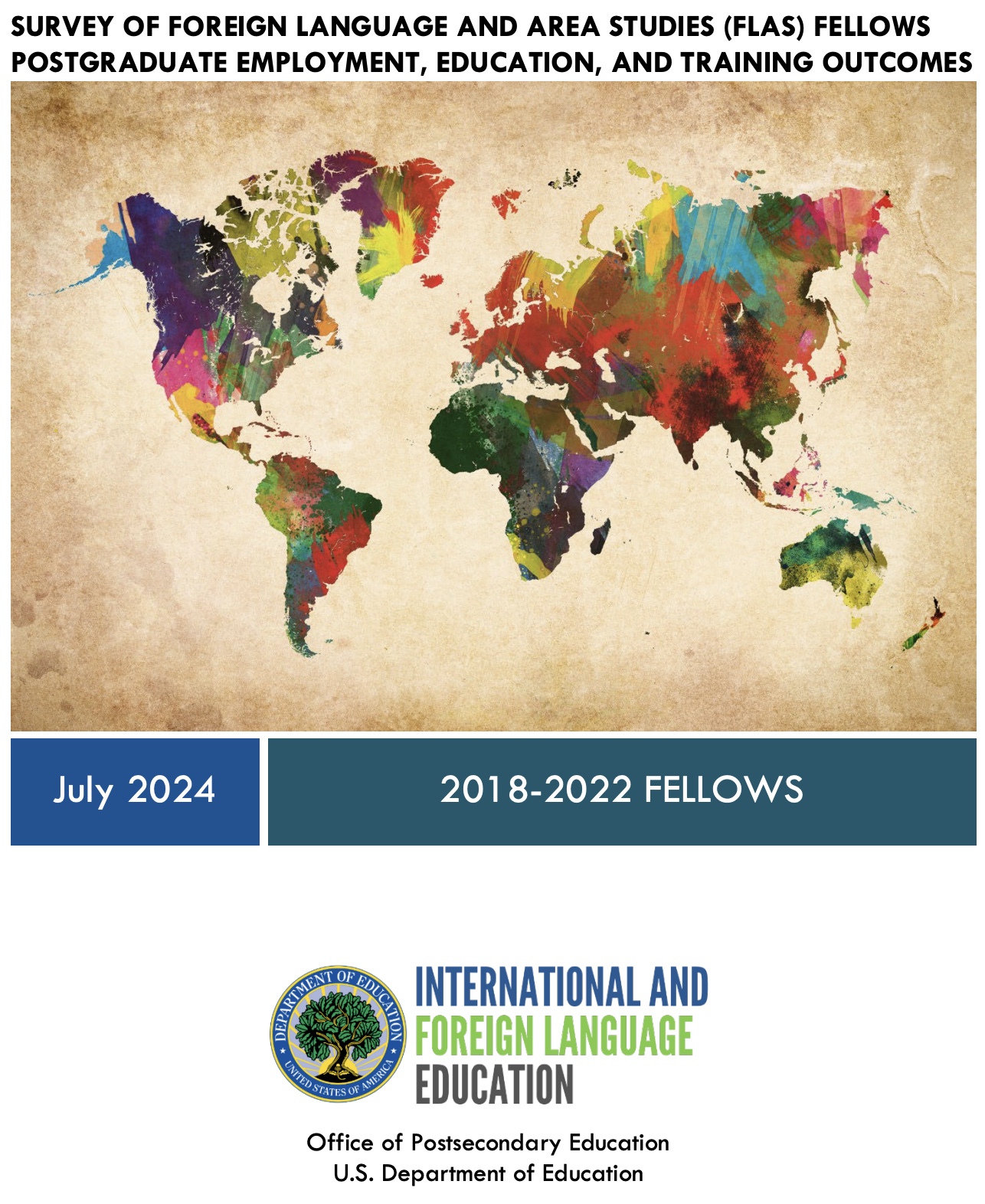
The International and Foreign Language Education (IFLE) office has published the results of the survey of 2018–22 Foreign Language and Area Studies (FLAS) fellows' postgraduate employment, education, and training outcomes. The Title VI FLAS Fellowships program supports meritorious undergraduate and graduate students undergoing training in modern foreign languages, and related area or international studies, to develop expertise in these areas at the national level for the benefit of American educational institutions, government agencies, nonprofit organizations, and businesses. The FLAS survey report is a summary of over 3,200 individual responses received from 2018–22 fellows during the open survey period of December 2023 to February 2024.
Principal survey findings provided insights on languages studied and language proficiency gains, the use of language skills and area studies knowledge in current jobs, employment outcomes, and global competencies. Select highlights include:
- Fellows studied 116 languages using their first FLAS fellowship. The study of Arabic, Portuguese, Russian, Chinese, Japanese, and Korean accounts for over 50% of the fellows surveyed. A similar pattern exists for languages studied during a second FLAS fellowship, with Arabic, Russian, Chinese, Portuguese, Japanese, and Hindi or Urdu together accounting for almost 49% of responses.
- Survey respondents use language and area studies skills frequently in their current jobs. Approximately 62% of fellows report that language skills are considered important to their current positions while 71% report that area studies knowledge is a key asset in their current jobs.
- FLAS alumni report that their awards had a significant impact on their labor market choices, stating that their fellowships were very important (almost 50% of respondents) or absolutely essential (almost 47% of respondents) in their selection of the type of job and employment sector.
- Nearly all (93%) of survey respondents who are employed full- or part-time, work for domestic employers, most of which are in California, the District of Columbia, Wisconsin, New York, and Utah.
- Approximately 84% of FLAS alumni assert that their fellowships were very important or absolutely essential in acquiring four of the six global competencies identified in the Department of Education's (Department's) Framework for Developing Global and Cultural Competencies to Advance Equity, Excellence, and Economic Competitiveness. Specific competencies include the ability to work or study in one language other than English, the ability to effectively collaborate and communicate with people in cross-cultural settings, the ability to analyze and reflect on issues from diverse perspectives, and the ability to engage meaningfully in a wide range of civic and global issues and to be successful in one’s discipline or specialty in a global context.
